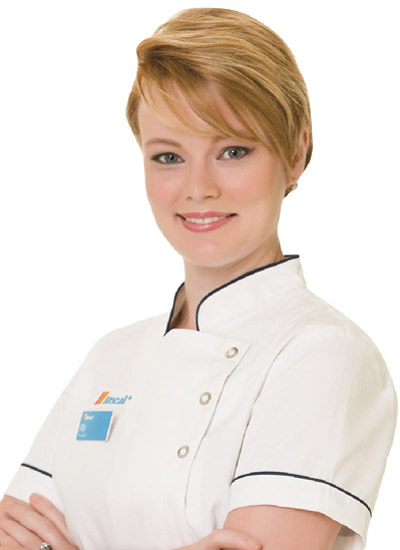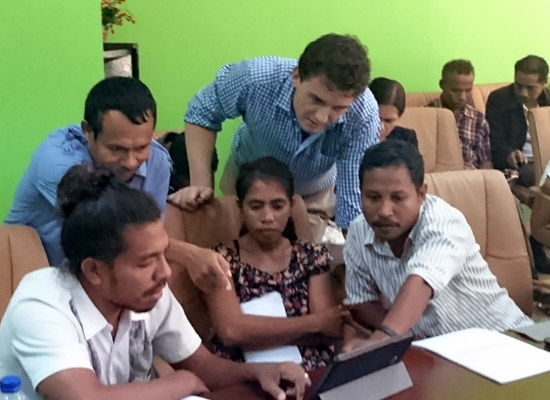Often I hear pharmacy students’ concerns about struggle for identity within the pharmacy profession. It is one of the major reasons why many young pharmacists are choosing to leave the profession. This suggests that students are distressed over the perceived lack of opportunities within the profession. Especially since it can be easy to fall into the routine of pharmacy, the challenge is finding a job that is enjoyable yet challenging.
There are often negative connotations made towards the profession, in particular the community pharmacy sector; and this is often seen in the media. To make matters worse, in terms of career options after graduation, students are only exposed to community and hospital pathways in University.
In a profession where lifelong learning is a part of the job description, it should come as no surprise then when pharmacists work in different environments to develop, expand and specialise their role in optimising patient care.
There are so many innovative streams you could branch out into within pharmacy; something for everyone’s passion if you don’t limit yourself by low expectations and step out of your comfort zone.
I spoke to a couple of pharmacists and was reassured that pharmacy is a career which is so very versatile. As the demand for healthcare and the industry is growing, there are many roles pharmacy can look to and even roles that don’t exist yet - the roles we will create.

Industry - Megan Kazantzis
(Premium Programs Manager, Sigma Healthcare)
Just over 2 years ago in 2016 - the position was advertised on both LinkedIn and Seek, but I also knew one of the pharmacists already working there who referred me for the position.
2. What made you decide to work for the pharmaceutical industry as opposed to hospital/community pharmacy?
I had been working in both hospital and community, and whilst I enjoyed both these settings I wanted a new challenge and to broaden my experience.
3. What are some of the challenges you face in this type of work?
Initially the change of scenery was challenging - ie corporate structure/ expectations / day- to-day operations are very very different from the community/hospital setting, so this took a little while to adjust too. Especially not having set hours, after being used to needing to be at work at a specific time to open the pharmacy/department. Another challenge would be that by not having set hours/ shifts and lots of interstate travel there's been less routine in my life, not necessarily a bad thing but definitely a change.
4. What do you find most rewarding about working for Sigma?
Having the opportunity to meet and work with so many different businesses and pharmacists from across the country.
5. What career development/advancement opportunities are there in industry pharmacy that would make it sustainable as a long-term career option?
By diversifying my skill set, and by meeting so many new people and companies the opportunities are endless in terms of new roles that become available across different companies and settings. There's also opportunities for further training that comes with working for large organisations that have the ability to support training and upskilling.
6. What makes working in industry pharmacy better than hospital/community pharmacy?
I don't think it’s better, just different. I miss the patient interaction and the opportunity that community pharmacist's have to positively impact on the health of their communities every day.
7. What would be your advice to students interns and pharmacists thinking about working in industry pharmacy?
Definitely give it a go if it interests you, it’s always a good idea to experience what else is out there and explore what opportunities there are for pharmacists outside of your normal practice. However it's always best to reflect on why you became a pharmacist and what you value in a job. If you love the customer interaction and working with the community/ patients, then industry may not be suitable for you.

Developmental Aid - Michael Nunan
(Health System Specialist, Beyond Essential Systems)
1. How / when did you start working in developmental aid?
I did the Matthew Peck Scholarship as a Monash University student in 2004-5, then after graduating I went to Solomon Islands as a volunteer
2. What made you decide to work in a third world country?
The Matthew Peck scholarship opened me up to some amazing experiences and it felt like a way to give back. I could see that pharmacists can play a huge role in development.
3. What are some of the challenges you face in this pharmacy work setting?
Politics, very poor health literacy amongst the public, lack of financing, a lack of strong middle-level public servants. The bureaucracy that keeps a country running is often not well supported.
4. What do you find most rewarding about your work?
When a project can be shown to be working. Mainly my work is in improving the availability of essential medicines so when I see a nice survey result or a warehouse full of drugs, I feel pretty chuffed.
5. What career development/advancement opportunities are there in developmental aid that would make it sustainable as a long-term career option?
Doctors without Borders and Save The Children all employ pharmacists who got into development through pharmacy. There are heaps of people running organisations that started as pharmacists too. It is a tough career choice though with lots of travel and stress; and you need to be able to put up with tough living conditions and circumstances.
6. What makes working in developing communities different to Australian pharmacies?
Pretty much everything! You will rarely do ‘clinical’ pharmacy working overseas. You get to cover the spectrum of healthcare from policy development to disaster response, health financing, programmatic planning, training, infrastructure. It’s nice being able to see how the health system works from the Minister’s office down to the service delivery end and pharmacists are involved at every step.
7. What would be your advice to students and pharmacists thinking about where they want to work post graduation?
Start thinking about it early, try to dip your toe in the water somewhere and get experiences. It may not be for you but if you’re thinking about trying something, take the leap!! Do it early – in your 20s, it is the perfect time to hit pause on your career and try something different. At worst, you will come back to Australia with a heap of valuable experience and a hugely interesting line in your resume that will make you stand out. At best, you might just find a whole new career path!




